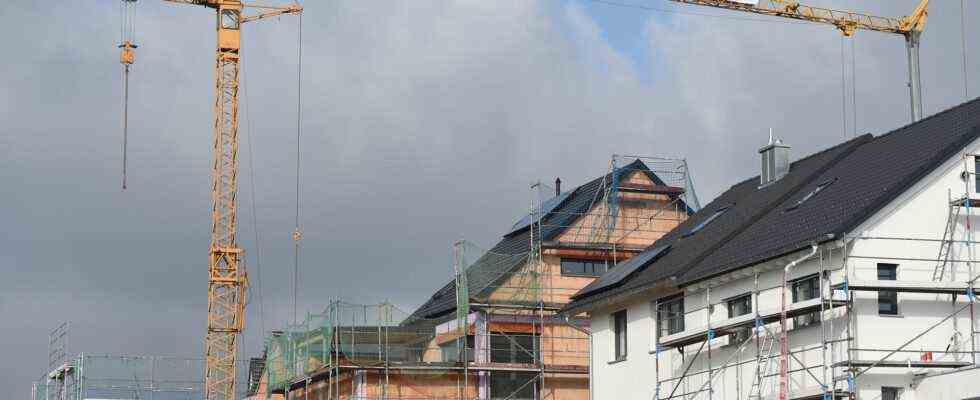Status: 07/06/2021 2:38 p.m.
Bausparen is also popular in Germany in times of pandemic. With many millions of contracts, German citizens try to save money for their own home and secure favorable loan terms.
Saving money and at the same time securing interest for a home loan – that is still what many savers who want to build up assets for the planned purchase or construction of a home do. After the classic savings book and life insurance, the home savings contract comes as a form of savings for Germans far ahead of shares or investment funds – and also ahead of the state-sponsored Riester pension. This has been confirmed by a recently published study by ING-Diba. Last year, Germany was the “European savings champion”; 388.5 billion euros in private financial assets were saved in the past year alone.
1.5 million new contracts
Bausparen also benefited from this. The “Association of Private Building Societies” refers to 25 million current building society contracts. At the end of 2020, there were 919 billion euros in the contracts, 1.5 million new contracts were added with private and public building societies in the past year, and almost 41 billion euros were paid out to building society savers to finance housing.
The image of the building societies is a little bit battered by current legal disputes, but that apparently hardly hurts the business. At the end of 2019, the Koblenz Higher Regional Court had already prohibited Debeka Bausparkasse from charging flat-rate processing fees from building society savers. A revision of the Debeka against this judgment was only withdrawn on Friday last week. Apparently they did not want to wait for another defeat before the Federal Court of Justice (BGH).
First save, then pay off
The principle of building society savings still seems sensible to many German citizens. With a home loan and savings contract, money is saved monthly over a period of several years in the first phase. As soon as a certain amount of savings is reached, the contract is considered “ready for allocation”. In the subsequent loan phase, the saver can then draw on a predetermined loan amount. Both in the savings phase and in the loan phase, the savings or loan interest rates are agreed in advance.
There are many reasons for the continued popularity of home loan and savings contracts. For example, the corona pandemic with the trend towards home offices has further increased the desire to own a home. The construction boom in Germany continues unabated. For the current year, the Association of the German Construction Industry expects a further increase in sales of three percent for the industry to 52.6 billion euros.
In the meantime, building is becoming more and more expensive, also because the prices for building materials are rising inexorably. The Federal Statistical Office recently reported a rise in the price of solid structural timber by a good 83 percent within a year, with construction timber rising by 38 percent and reinforcing steel by 44 percent.
Securing interest rates as the main motive
The building society saver cannot protect himself against rising construction and real estate prices, but he can protect himself against further rising mortgage rates. Because with a building society loan agreement, the conditions for a loan with the building society are binding eight or ten years before it is paid out. So if you assume that building interest rates will continue to rise significantly in the coming years, you will create a bit of reliability here.
The building society saver also benefits from the state house building premium if he does not exceed certain income limits. At the beginning of the year, this was increased to ten percent of the annual savings, to a maximum of 700 euros (or 1,400 euros for married couples). On the other hand, there are one-off acquisition fees and annual fee payments.
Useful for small loan amounts and low incomes
Another special feature of building loan agreements is that loan amounts under EUR 50,000 can be financed cheaply, but banks often charge interest surcharges on conventional building loans. This can be used to finance upcoming modernizations, for example. And last but not least, home loan and savings contracts enable special repayments or repayment of the entire loan at any time before the end of the contract period.
Whether building society savings are still worthwhile depends on various factors, as Stiftung Warentest also determines in a current tariff overview. Personal income, time horizon, expectations of interest rate developments and loan requirements should all be taken into account when choosing a building society plan. If you want to build or buy a property in the coming years, you can secure favorable interest rates with “forward” loans but also with classic construction financing. In addition, since the funds saved in the savings phase no longer earn interest in current home loan and savings contracts, alternative forms of savings, from overnight money to investment funds, can make more sense when building up assets before buying real estate.

